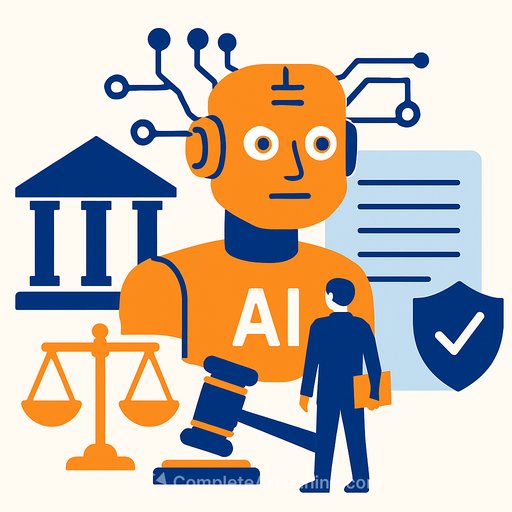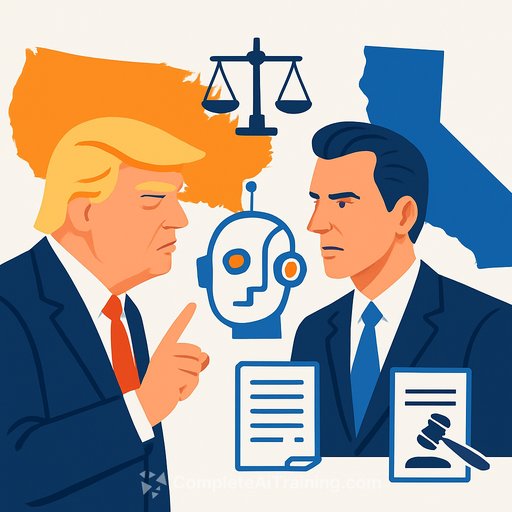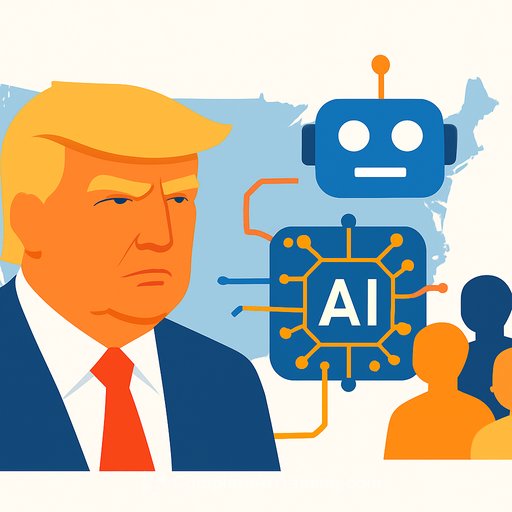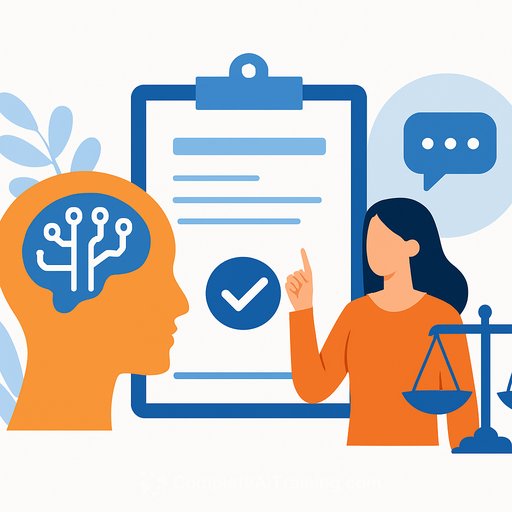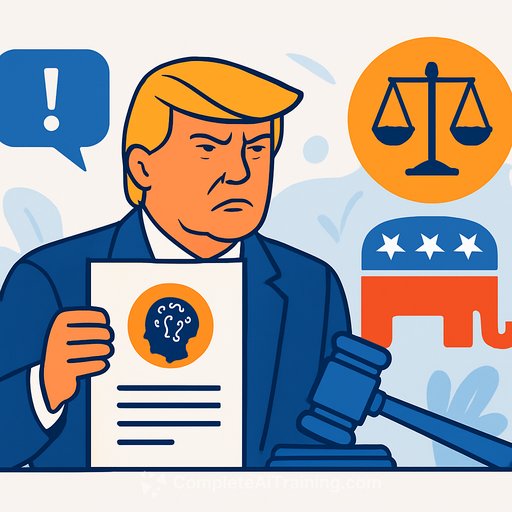Artificial Intelligence and Legal Compliance: A Practical Overview
July 28, 2025 · 9 minute read
Key Points
- Legal professionals must balance innovation with public safety as AI adoption increases.
- The EU AI Act categorizes AI systems by risk, imposing strict rules on high-risk applications and banning unacceptable ones.
- US federal agencies like the SEC, FTC, and FCC have issued targeted regulations for AI-powered applications.
Artificial intelligence is transforming workflows across industries, including legal services. As law firms and businesses integrate AI, they face ethical questions and regulatory challenges. To manage these effectively, legal professionals need to track AI laws and standards that apply not just to AI explicitly, but also to related areas such as data protection, intellectual property, and consumer rights.
The legal landscape for AI is evolving internationally and domestically. This article provides an overview of current AI regulations and their implications for legal practice.
International AI Regulations
In June 2024, the European Union adopted the EU Artificial Intelligence Act (Regulation (EU) 2024/1689), the first comprehensive legal framework addressing AI development, deployment, and use. The Act seeks to foster AI innovation while ensuring safety, transparency, non-discrimination, and human oversight.
The EU AI Act introduces a risk-based classification system for AI systems with four categories:
- Minimal or no risk systems
- Limited risk AI systems
- High-risk AI systems
- Unacceptable or prohibited AI practices
AI systems deemed high-risk—such as those used in medical devices, transportation, critical infrastructure, biometrics, education, and legal assistance—face strict technical and compliance requirements. Organizations involved in the AI supply chain have clearly defined roles and responsibilities.
Practices considered unacceptable include those that exploit vulnerabilities based on age, disability, or economic status, emotion recognition in workplaces or schools, and indiscriminate web scraping for facial recognition databases.
Generative AI (GenAI) tools, including models like ChatGPT, are often categorized as general purpose AI (GPAI) and must comply with transparency and copyright obligations. Developers must ensure users are informed they are interacting with AI and that synthetic content is clearly labeled, using reliable and interoperable technical measures.
AI Regulation in the United States
Federal Developments
The US currently lacks a comprehensive federal AI law. On January 23, 2025, an executive order was signed rescinding previous mandates on AI safety testing and civil rights protections. Instead, federal agencies have taken targeted actions:
- Securities and Exchange Commission (SEC): Established the Cyber and Emerging Technologies Unit to address AI-related fraud.
- Federal Trade Commission (FTC): Enforced rules banning fake reviews, including those generated by AI.
- Federal Communications Commission (FCC): Regulated AI-generated robocalls to protect consumers.
State-Level Initiatives
Several states have introduced AI laws impacting data privacy, employment, healthcare, and algorithmic decision-making. Two significant examples include:
- Colorado’s Consumer Protections in Interactions with Artificial Intelligence Systems (SB 23-205): Passed in May 2024, this law takes a risk-based approach similar to the EU AI Act. It requires organizations deploying high-risk AI to create risk management programs, prevent algorithmic discrimination, and meet strict reporting and compliance standards. The law takes effect on February 1, 2026.
- Utah’s AI Consumer Protection Amendments and AI Policy Act: Enacted in 2024 and 2025, these laws regulate GenAI use in consumer transactions and regulated services.
AI’s Impact on Legal Practice
AI tools are changing how lawyers operate. Automating document review, legal research, and contract drafting can save attorneys hours weekly. This time can be redirected to strategic work and client engagement.
Clients gain faster responses, fewer errors, and more insightful case analytics. Lawyers can also provide more tailored advice with AI support. However, AI outputs require human verification, especially in advice and courtroom representation.
As AI becomes more common, the legal field may see new roles emerge, such as AI specialists, cybersecurity experts, and AI implementation managers.
A recent report found that 95% of attorneys expect generative AI to integrate into their workflows within five years. Key tasks assisted by AI include:
- Document review: Quickly summarizing vast collections of documents to identify relevant information.
- Legal research: Efficiently analyzing laws, cases, and statutes with accurate citations.
- Drafting memos and contracts: Automating document creation, reducing turnaround times.
Over half of surveyed lawyers believe AI will help process large volumes of legal data, improve response times, and reduce errors. Still, balancing innovation with ethical practice and regulatory compliance remains essential.
Legal professionals interested in enhancing their AI knowledge and skills can explore specialized training and courses. Resources like Complete AI Training’s courses for legal professionals offer practical guidance on AI implementation in legal settings.
Your membership also unlocks:

